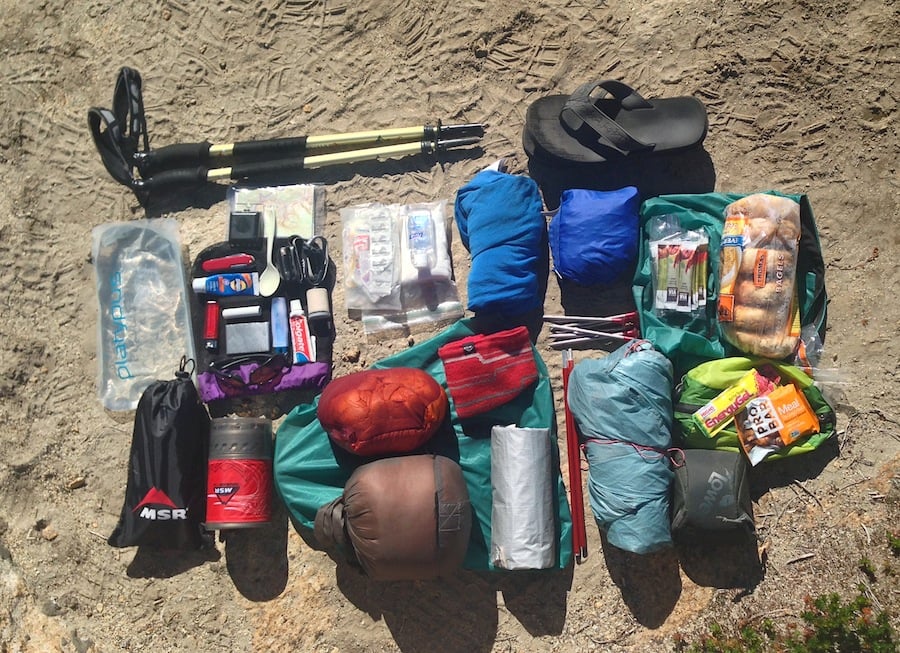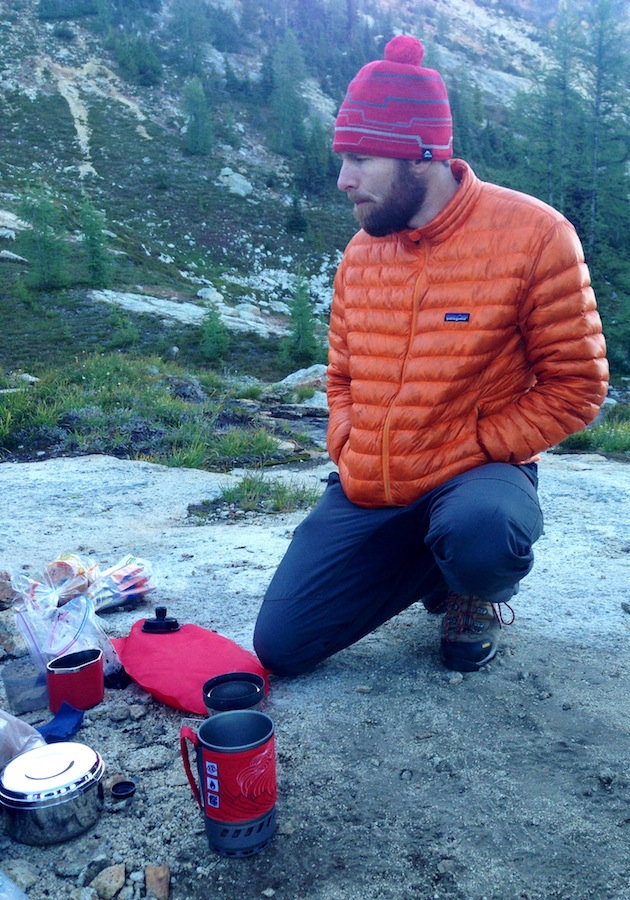Want to know what someone who works in product development for one of the top camping/backpacking brands in the world carries in their pack for a weekend backpacking trip? Of course you do.
A long-time resident of the Pacific Northwest, Chris Barchet literally grew up playing in the Cascades — his backyard and product testing haven. We tagged along with Barchet and Seattle’s Mountain Madness guide service for some peak bagging and product testing last week in the North Cascades along the Pacific Crest Trail.
Here’s what we found out:

“I began backpacking with the Boy Scouts adhering to their motto, ‘Be Prepared,'” said Barchet, category director, MSR Winter and Water Products. “My 50-60 pound pack had everything under the sun…just in case. Ten years ago I had the opportunity to hike the John Muir Trail, but carrying 50lbs for 200+ miles was not appealing. I did what I could on a budget – cut parts off our packs, made a Pepsi Can Stove, only brought a tarp (no tent) and sawed the handle off my tooth brush.”
“With minimal expense I was able to drop over 20 pounds from my total pack weight and reached the summit of Mt. Whitney in under 12 days,” he said. “After that I evolved my backpacking gear to be very light by making my own pack, purchasing an ultralight sleeping bag, etc., until my gear weight was about 12 lbs.”
“Now I take a more moderate approach. I want to maintain a reasonable level of comfort on the trail and at camp,” MSR’s Barchet explained further. “For each trip I carefully select the right balance of gear to make the whole adventure enjoyable. This might mean carrying a warmer tent if I’m going with my wife, or leaving the heavy rain parka at home if the forecast looks good.”
“To keep things light I try to use each item for multiple purposes – like using my insulation layer as part of the sleep system. I rely on past trips as a guide for what to take and what to leave. At the end each trip I update my gear list with notes to make the next one even better,” he advises.
The pack configuration shown here is for 2 nights, 2 people, based on a North Cascades climate and topography, approximately 10 miles/day, camping below tree line, with a dry and warm weather forecast, low bug season, and some scrambling. Adjust as necessary.
Sleep System:
MSR FlyLite Tent
8 Carbon Core Stakes (these things are crazy light)
Therma-Rest X-Therm, Small
Therma-Rest Navis Sleeping Bag
SealLine Cirrus 30L Dry Sack
Water:
MSR AutoFlow Gravity Filter
Platy 2L Bottle
MSR AquaTabs (First Aid Kit)
Food:
MSR WindBoiler w/ 4-oz. Fuel Canister
Snack Bag
SealLine Cirrus 20L Dry Sack w/ Bear Line (not shown)
Clothing:
Down Jacket w/ Hood
MSR Sport Tuque
Light Rain Jacket
Wool Long Sleeve Shirt
Essentials:
Map & Compass
Sunglasses & Sunscreen/Lip balm
Headlamp
Knife
Lighter
Spoon
Toothbrush & Toothpaste
First Aid Kit (moleskin, bandaids, athletic tape, ibuprofen, gauze, anti-bacterial wipes)
Duct Tape
T.P. & Hand Sanitizer
Luxury Items:
Flip Flops
Camera
Wearing (not shown):
Trekking Pants
Wool T-Shirt
Baseball Cap
Hiking Boots & Wool Socks









